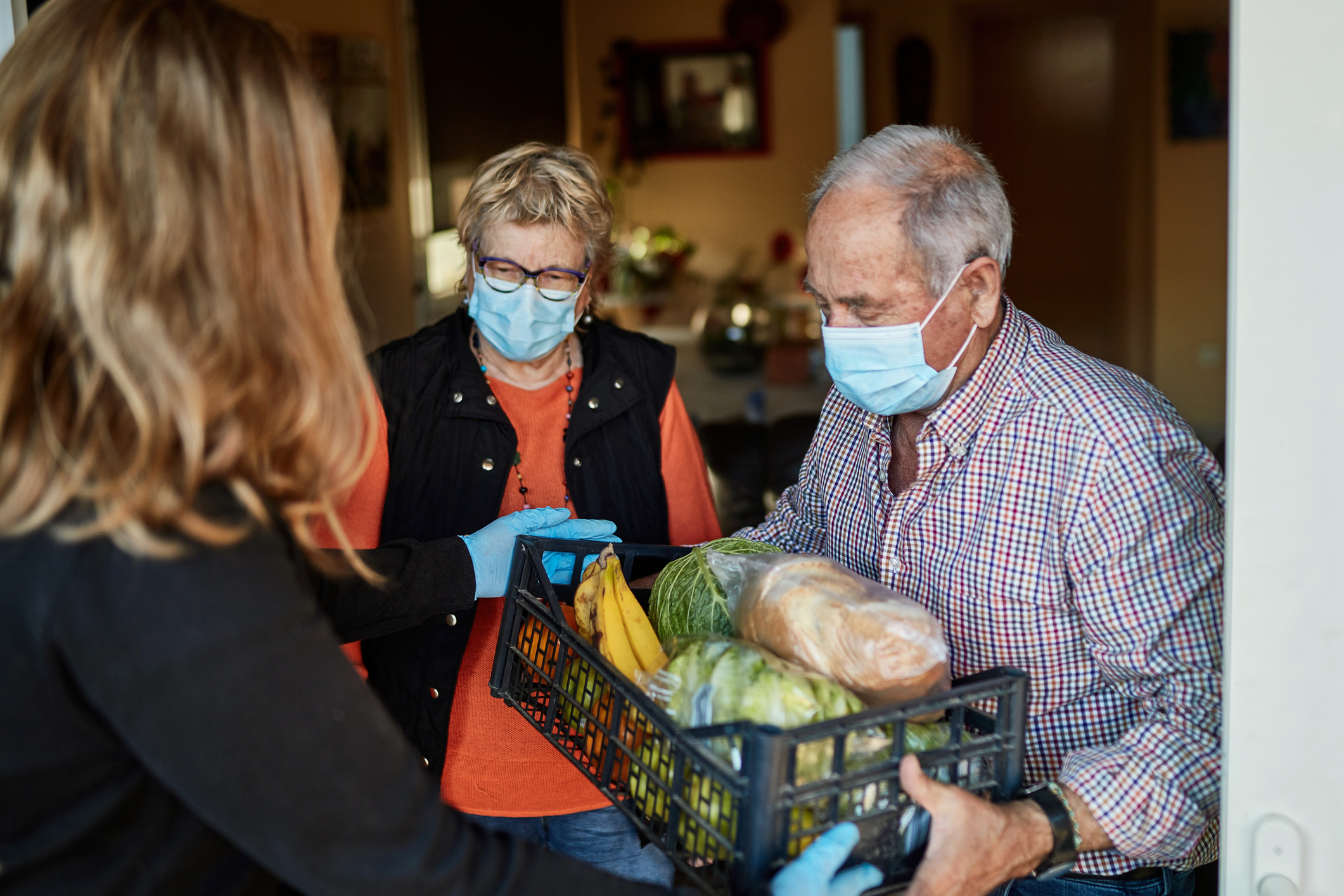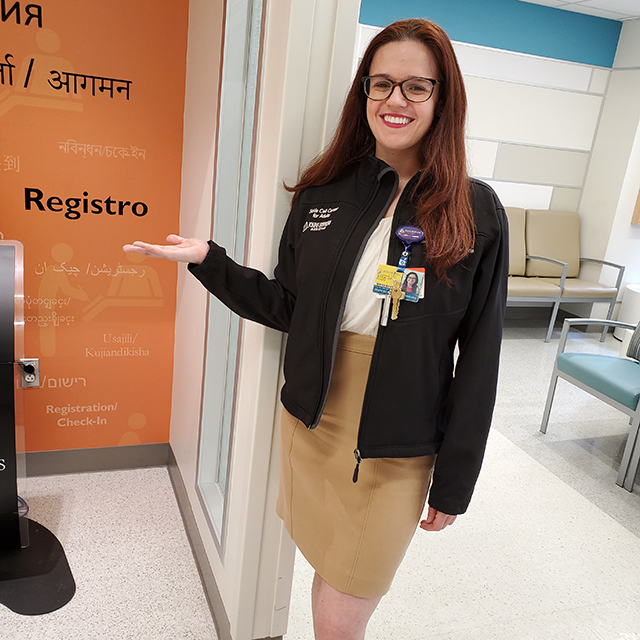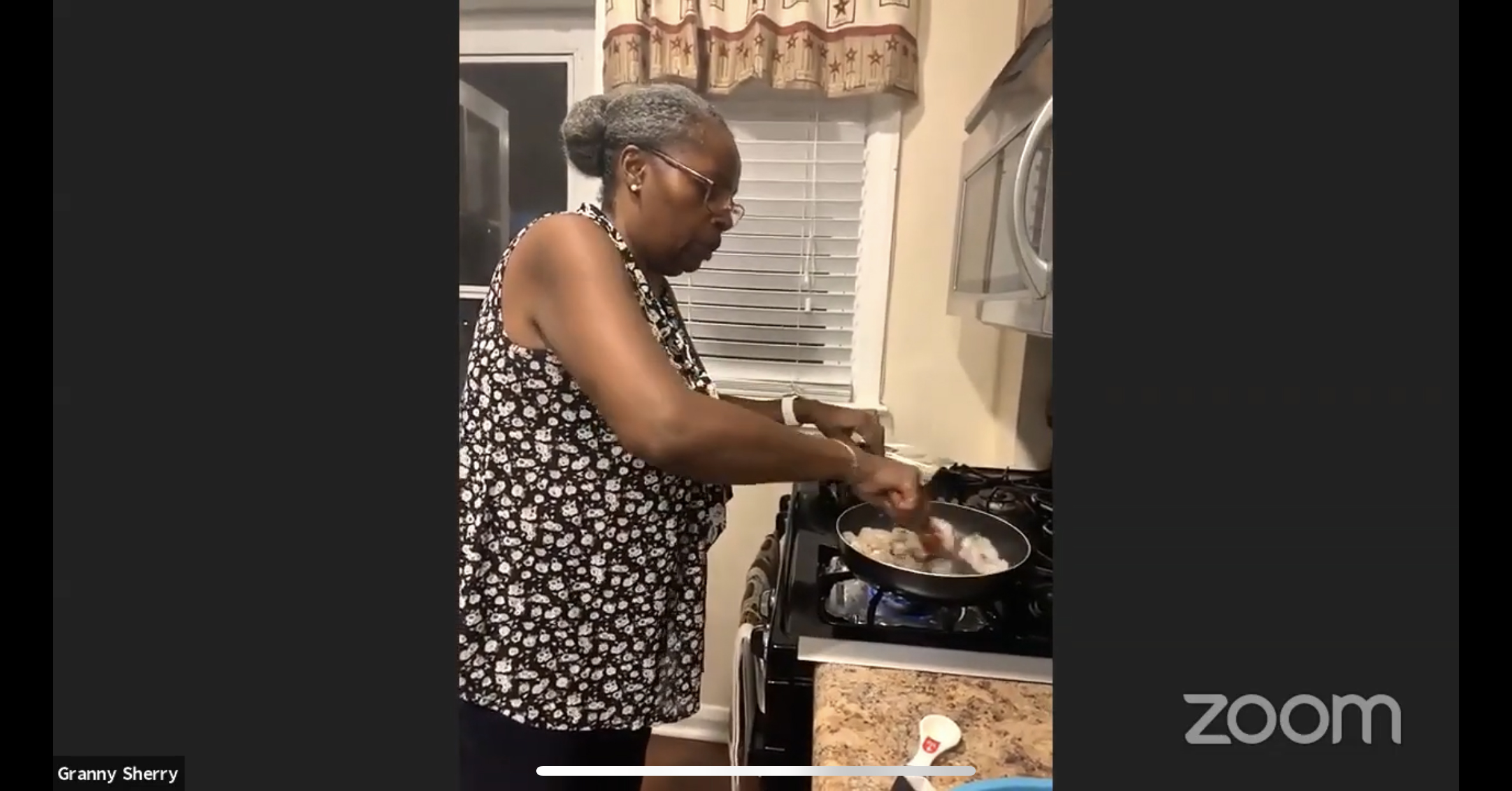Social worker Jessica Contreras provides supportive services to many immigrant families at Johns Hopkins Bayview Medical Center’s Children’s Medical Practice, but she finds they sometimes need resources that Johns Hopkins is unable to provide. Contreras often reaches out to the Asylee Women Enterprise (AWE), a nonprofit that provides asylum seekers and other forced migrants a variety of resources to help rebuild their lives in Baltimore.
“To serve many of our families, we need to meet their basic needs,” says Contreras. “They are not going to be healthy without food and shelter. AWE helps me connect them to resources so we can focus on their health care. We need each other.”
As asylum seekers navigate the immigration legal process, AWE provides a community of support in East Baltimore. Before the pandemic, participants gathered Monday through Thursday to get assistance with English as a second language, job readiness, computer classes, parenting skills classes and wellness activities. Classes have moved online, and in September will resume in person on a limited basis. They also provide housing resources, a food pantry, child care supplies and some financial assistance.
“AWE is an excellent resource because their focus is to assist families,” says Contreras. “We put our heads together to connect the families to the right resources. Many families have been waiting right outside the border before coming to Baltimore. A frequent problem is that they don’t have enough food. AWE provides fresh foods and dishes that are culturally appropriate for these families.”
This year, the Johns Hopkins Neighborhood Fund awarded AWE a $15,000 grant. The fund supports nonprofit organizations that serve the communities near Johns Hopkins campuses and are associated with Johns Hopkins Medicine through employee or institutional involvement. The Neighborhood Fund uses pledge donations made through the United Way campaign to help local nonprofit organizations build stronger neighborhoods by addressing needs in areas of community revitalization, education, employment, health and public safety.
“During COVID, we had to scale up our food pantry to meet the needs of our asylum seekers,” says Tiffany Nelms, AWE’s executive director. “We served more than three times the amount of food in 2020 than we did in 2019. While our main focus is going to continue to be the day and housing programs, we plan to use the Johns Hopkins Neighborhood Fund grant to provide more access to the food pantry for our community of asylum seekers, most who are ineligible for public assistance.”
Nelms says 50% of AWE’s clientele are immigrating from Central American countries like Honduras, El Salvador and Guatemala. The other half are immigrating from Africa or the Middle East. She says many have been detained in immigration facilities.
“We provide services to populations that have complex trauma,” says Nelms. “We believe in holistic care, and we don’t want anyone to fall through the gaps. Johns Hopkins Medicine helps us build trust with the community because they invest a lot of time in making sure people are connected with the appropriate resources.”
Johns Hopkins East Baltimore Medical Center social worker Johannah Drago says she often sees patients who need food resources, and she knows she can reach out to AWE.
“They are always gracious and willing to help,” says Drago. “They always respond within 30 minutes. I know I’m putting our patients in good hands.”
Drago says many of her patients aren’t eligible for government programs because of their immigration status. She says AWE is an important connection to have because she knows her patients will receive help and be treated with respect.
Senior psychotherapist Donna Batkis, who works at the Hispanic Psychiatry Clinic at Johns Hopkins Community Psychiatry, says AWE has helped her asylum-seeking patients survive and thrive.
“AWE is often able to help us find housing and food to get our patients on their feet,” Batkis says. “They work hand in glove with us to provide resources. AWE also provides our patients with community and security. I always have total confidence that AWE will give them the help they need.”
Batkis says AWE truly individualizes their clients’ care and fills their clients’ hearts with joy and optimism.
“They really do take serious situations and give people a sense of hope, purpose and meaning,” Batkis says. “Without the structure and support given by AWE, a lot of people wouldn’t make it. They help people become whole again.”



